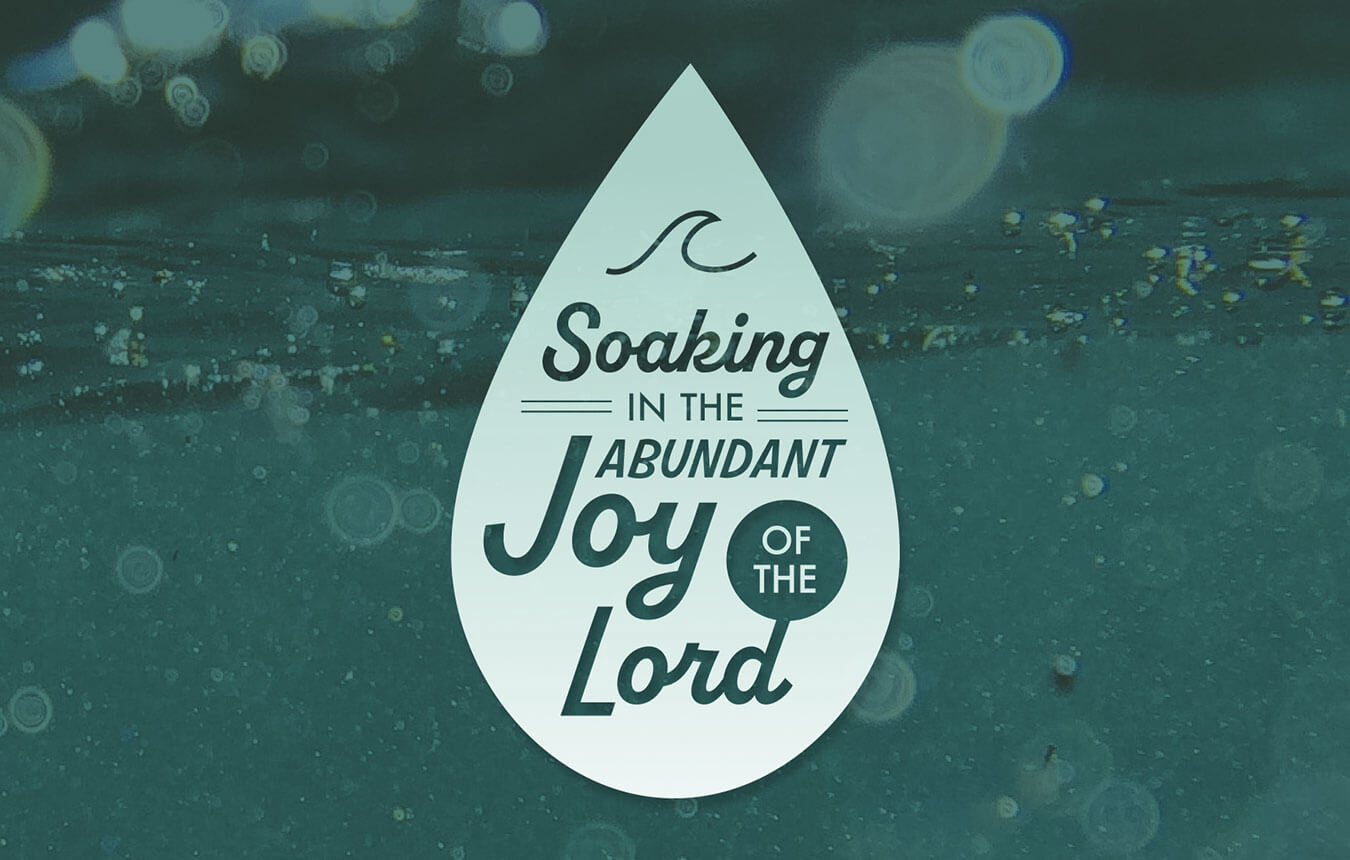
Concordia Seminary Newsroom
Soaking in the Abundant Joy of the Lord

by Dr. Jeffrey Oschwald
It may be the case that, according to the rhythm of the world’s seasons, what happens in April leads to May flowers, but according to the rhythm of the seasons of our life together in the church, and especially here at Concordia Seminary, what happens in April leads to summer ordinations and consecrations and installations. Perhaps you have just celebrated yours — either as the one being ordained or consecrated or as the congregation receiving a new pastor or deaconess. Perhaps you’ve attended an ordination/consecration or two while beginning or continuing your own studies en route to becoming a pastor or deaconess. Perhaps you need to be careful.
Have you noticed how often the sermons at such services follow a pattern that begins by emphasizing the difficulties and challenges involved in the life of a servant of God, and continues by emphasizing the sacrifices involved in the life of a servant of God. Then, the sermons build to a climax focused on the hostile opposition shown by our own sinfulness, the world and our satanic foe to the life of a servant of God, and then conclude by calling upon the servant to rejoice — because the ministry will be the greatest source of his or her joy? I have heard sermons like this. I have preached sermons like this. Forgive me for making a caricature of good Lutheran preaching, but I do fear that sometimes the caricature is what people — including the newly ordained/consecrated — walk away with. And that can drain the joy right out of you. Surely, we have more to say about joy than this -— both joy in general and joy in ministry! It can’t be true, can it, that the only kind of joy we know is “joy in spite of”?
Ten years ago this September, Concordia Seminary hosted a Theological Symposium on the theme “Faithful Witness to God’s Story in the World Around Us: Bringing a Unique Perspective to Common Human Experiences.” The particular topic assigned to me was “Faithful Witness in Suffering and Joy.” Since we Lutherans love to talk about suffering (and other presenters were as well), I decided back then to focus on joy. There is no need to repeat here what I wrote back then; anyone interested can find it (and the other presentations) in volume 41:2 of the Concordia Journal. Thinking about joy again, however, reminded me of a kind of challenge I issued to my hearers (and myself) in that essay. I asked why anyone would want to listen to Christians — Christian theologians in particular — about joy. Are we “joy experts” or are we rather “joy expats” — people living at great distances from our homeland of joy, people whose only experience of joy is the hopeful longing that someday we might feel it again? I wondered: “Ten years later, how am I doing?” What have I learned of, tasted of, taught of the joy that is one of the defining characteristics of the child of God?

During this past decade, I have spent a fair bit of time studying the Acts of the Apostles and I’ll have to admit that some of the references to joy and rejoicing in Acts sound like very familiar territory for us Lutherans. For example, in 5:41, the Jerusalem apostles rejoice that they were considered worthy to be dishonored (honored to be dishonored!) for the sake of their Lord’s name. And yet, there are in Acts some words about joy that may not be quite so familiar, words worth some careful consideration. Let me share three significant ideas about joy, three steps toward moving from freshman to sophomore in the school of joy that all have anchors in Acts.
First of all, reading Luke’s second book gives the reader an ever-deepening appreciation of David’s prayer in Ps. 51:12a ESV: “Restore to me the joy of your salvation.” This appreciation deepens not so much from a new understanding of joy, but rather from Luke’s rich and inclusive understanding of salvation. Both in his Gospel and in Acts, Luke prefers to speak of almost everything our Lord and Savior does to help us as “salvation”: Christ saves us from enemies, from damnation, from illness, from sin and death, from demons, from blindness, from lostness, from this crooked generation, from unbelief and unrighteousness, from assassination attempts and from shipwreck, from fainting because of hunger and from falling asleep in church, from snakebites and from the brood of vipers. In Acts, the Lord Jesus is saving people every day, and some, it would seem, more than once on the same day! As Luke narrates for us all that Jesus continues to do and teach (cf. Acts 1:1), he also reminds us that the Lord’s work of salvation includes every moment of His people’s lives. The Lord is always bringing us to that good end which He has planned for us, and that includes everything from surviving COVID, to not getting hit by the car that just ran the red light, to remembering your wedding anniversary just in time, to the gift of repentance for the forgiveness of sins in His name. And it includes “departing in peace” when it is time for us to receive “the inheritance of the sanctified.” How does the Lord restore salvation joy to us? By constantly showing Himself to be our Savior, every moment of every day. So, we too, just like the Jerusalem apostles, can be “on our way” every day “rejoicing.”
A second lesson: Often, and this is especially true for the church worker, joy comes from “being considered worthy” not to suffer but to witness the Word of life at work in someone else’s life. Acts 15:3 may strike the reader at first glance like some sort of sub-canonical business/fundraising report, but in town after town hearing how “the nations” were being “turned around by” and “turned toward” the God of their salvation brought genuine joy to the hearers. It was amazing for the already-believing to witness the outpouring of the Holy Spirit on the household of Cornelius in Acts 10. In Acts 8, the proclamation of Christ by Philip spreads “much joy” throughout the city of Samaria.
Brothers and sisters, this is no small gift, no petty honor, no trifling consolation for a life of personal sacrifice and hardship. The high honor of being called τῇ διακονίᾳ τοῦ λόγου — “to be the Word’s assistants” — is an honor that Paul will later describe as “overflowing with joy” or, more woodenly, “hyper-abounding in joy.” Paul has seen the Gospel at work among the Corinthians, and seeing that has filled him with a joy that he struggles to describe (cf. 2 Cor. 7:4ff). There will be sacrifices and challenges to be sure, but what other calling invites a person to witness — sometimes with near strangers — the intimate joys of the hospital nursery and the graveside celebration of life — and every joy in between, especially the joy of knowing the Lord? And this leads right into my third and final and most important point.
In Acts 11:23 we read the strange report that Barnabas was sent to Antioch where he “saw the grace of God and was glad” — and that second verb is the verbal form of the noun joy, but sadly we can’t say in English “he saw and was joyed.” It’s the first part of that report, though, that we need to consider more carefully. What exactly did Barnabas see? What do you see when you see the “grace of God”?
The connection between grace and joy is not at all obvious in English, but, in Greek, χαρά (chara, “joy”) and χάρις (charis, “grace”) are so closely related that the dictionary tells us they can at times be equated with each other. When God shows us His grace, He is showing us that we are His joy, that He takes delight in us, that we are the object of His good pleasure. The family of words in and of itself has nothing to do with merit or lack of it, with deserving or not deserving anything. Grace, like joy, is because not in spite of: God takes delight in you just because He does. There is a play on words here: Barnabas sees that God has taken delight in these people and that fills him with delight.
“Baptism has plunged us into the bottomless ocean of God’s joy, power, peace and eternal life … soaked [us] in the super-abundant joy of the Lord.”
Like grace, joy is not an addendum, not a concession, not an afterthought to our faith — or to our God. Our God is a God of joy — gracious joy and joyful grace. The psalmists know this: “He is the joy in my rejoicing” (cf. Ps 43:4); “in His presence I know complete joy” (cf. Ps. 16:11). And the New Testament church knows this, too: God is the One who fills the believer with joy (Rom. 15:13); His Spirit gives and is our joy. C.S. Lewis explains this last point in a beautiful way in “Mere Christianity”:
Good things as well as bad, you know, are caught by a kind of infection. If you want to be wet you must get into the water. If you want joy, power, peace, eternal life, you must get close to or even into, the thing that has them. They are not a sort of prize which God could, if He chose, just hand out to anyone. They are a great fountain of energy and beauty spurting up at the very centre of reality. If you are close to it, the spray will wet you: if you are not, you will remain dry. Once a man is united to God, how could he not live forever? Once a man is separated from God, what can he do but wither and die? (“Mere Christianity,” Bk. 4, Chap. 4 “Good Infection”; first published, 1952).
It is no uncommon feeling for the pastor, old or new, the student, beginning or continuing, or even for the “merely Christian” person, on getting out of bed in the morning, to feel that he or she is being “thrown into the deep end.” Perhaps Lewis’ image can restore some joy and excitement to the plunge! The things the Lord Jesus is “continuing to do and to teach,” He is continuing to do and teach through us. Baptism has plunged us into the bottomless ocean of God’s joy, power, peace and eternal life. To remember that Baptism, to serve that Lord into whom you are baptized, is to walk in the spray, to be soaked in the super-abundant joy of the Lord because you are united with Him in His work of salvation.
I began with a reference to Acts 5:41 and I’d like to end here, too. A more wooden translation of that verse would read: “And they were departing — rejoicing — from the presence of the Sanhedrin, because they were regarded as worthy to be dishonored for the sake of the Name.” That reads a little awkwardly because the tenses of the verb forms “departing” and “rejoicing” indicate ongoing action. Often the narrative will be clear that this action continued (“was ongoing”) until something else happened, but Luke doesn’t do that here. I agree with those who suggest that that’s because there is no end to the rejoicing. The journey continues: The Word is still going out into all the world, still growing and prevailing. The rejoicing continues: Rejoice always, again — let’s say it — rejoice! And now may the God of hope fill you with all joy and peace in believing, so that you may abound in hope by the power of the Holy Spirit (cf. Rom. 15:13).
Dr. Jeffrey A. Oschwald is a professor of Exegetical Theology at Concordia Seminary, St. Louis.